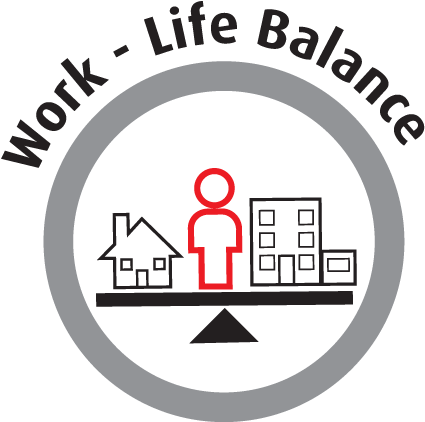Lessons Learned Along the Journey
We all know the adage people leave managers, not companies, but what does this really mean and how can we develop our leadership abilities to retain great employees?
In my own experience, the two aspects of a job that I value most are opportunities for professional development and advancement as well as overall company culture. I have been very fortunate to gain a wide variety of experience throughout my co-ops during my undergrad years at UC and my job experiences since graduating. These experiences have allowed me to draw very clear conclusions at a fairly young age surrounding my values and deal-breakers in the workplace. Over the past few years, I have served in employee and management capacities. I have allowed my learnings, good and bad, to shape my leadership from a multi-faceted view.
Professional Development & Advancement
Thanks to UC’s co-op program and my involvement with Carl H. Lindner’s Lindner Honors PLUS business program, I graduated from undergrad with 2 full years of meaningful work experience in my field. This is uncharacteristic of many recent grads, who are often seeking positions where they can create the experiences they need to advance their careers, sort out their values for their professional work, and define their deal-breakers. I came into the workplace desiring a mutually beneficial relationship, where I could offer up my strengths to the company in return for experiences that challenged me professionally and prepared me for advancement.
I was very clear with upper management in my desire to continuously grow and seek out more responsibility, but conversations were muddled regarding how to provide this. Initially, management seemed excited and sure about the possibilities of creating a space for advancement and professional development for me within the company. I started working on ideas for cutting costs, increasing revenue, retaining employees, recognizing leadership, carving out time for strategy instead of just fighting fires, etc.…then hit a brick wall. My ideas were no longer received; they were dismissed before I could even explain why they were important. My managers avoided engagement with me and restricted my access to projects that would aid in my professional development. Conversations around my desire for advancement became cold and resentful—my advancement was no longer discussed and management was not interested in developing me professionally.
As leaders, we must learn to use our employees as resources. Understand their strengths and weaknesses and challenge them to consistently operate at their highest levels, even if that means their journey will lead them away from the company. Selfishly, we want to keep great employees under our guidance, but we should recognize that there is more value in allowing them to grow and advance as they deserve instead of stifling their growth, even with another company. For the duration of their employment in your company, great employees will feel more empowered and productive when offered the opportunity to grow professionally, and often achieve more for the company in a shorter time period than they would without the same opportunity. What does this mean?
- Professional Development
- Create opportunities for employees to lean on their strengths
- Challenge their weaknesses
- Manufacture learning experiences
- Be a mentor or find mentors within the organization
- View great employees as valuable resources, not
competition
- You are on the same team!
- Equip leaders that you manage with skills to lead employees with differing levels of experience and expertise
- Advancement
- Get clear about opportunities with the company!
- Great employees will appreciate the honesty
- You will maintain positive relationships in your network whether great employees stay or leave
- Employees’ perspectives of the company will remain positive
- Support employees in deciding to stay or leave
the company
- Their journey may come full circle and lead them back to your company in the future
- Be comfortable in the fact that employees do move on…and that is okay
- Get clear about opportunities with the company!
Company Culture
Like most of my fellow Millennials, developing a work-life-balance is one of my highest priorities, with an ever-teetering scale of needs, responsibilities, and wants, I aspire to maintain equilibrium between the two. I am an ALL-IN person, always committed to anything that I involve myself in professionally and personally. I always give my all, which directs me to a tendency to overcommit and overwork myself. Recently, I found myself caught in a culture where the perception was:
VISIBLE TIME AT WORK = PROGRESS & SUCCESS
…this left me spending very long (12+ hour) days at work, several days during the week, while also being on call 24/7 on weekends to feel like I was pleasing upper management. I spent all this time at work, despite my own knowledge that if allowed to operate more efficiently, I could produce better results in less time, without burning myself out. This culture fostered an overworked and unappreciated sentiment amongst myself and my fellow coworkers, resulting in less creativity and productivity overall.
As leaders, we desire great employees that are committed to the values and achievements of the company, but we must be mindful of how company culture affects their commitment. In my experience, my scale weighed heavy in the professional realm, at the expense of my personal balance, which ultimately deterred my commitment. In a leadership position, dealing with a similar situation, we must take a deeper look at our employees to understand the most efficient methods to achieve goals, recognize and prevent burnout early on, and show our appreciation for the work that our employees do. The first step is to prioritize values: do we value progress (moving the needle) or simply face to face time? Sometimes face to face time at work does not always equal progress, and can be filled with social distractions, office talk, etc. This can especially be an issue when employees feel their scale is too far in the realm of their profession and they are unable to dedicate the time they need to their personal lives on their own time. Leaders must encourage work life balance to nurture creativity and productivity in the professional environment, so that employees can be PRESENT at work, instead of just being present.









Leave a Reply
Want to join the discussion?Feel free to contribute!